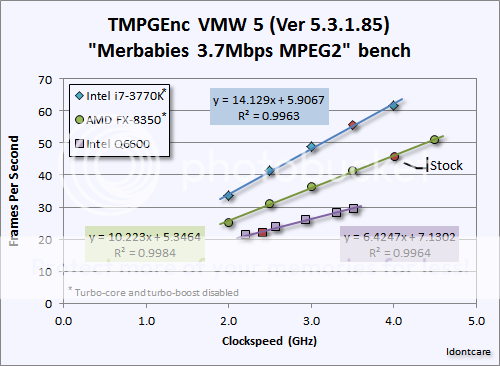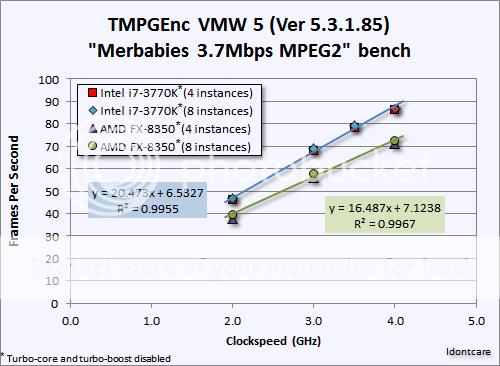frozentundra123456
Lifer
- Aug 11, 2008
- 10,451
- 642
- 126
Not poor thank goodness, but with an AM3+ mb the move to the PileDriver seemed most appropriate. What I really find amusing is the constant bashing by certain posters of the "excessive" power draw of the FX 8350.
Does it draw more power than the 3770k? Absolutely. Is it less efficient? Sure. But when you go down the path of less power draw, perhaps I can ask those critics why they are using separate high end GPUs such as a GTX680 with their 3570k/3770k when, if they claim they want to be power efficient, they don't just use the IGPU built into their cpu? That would probably save as much $$$ as they contend I waste on the FX 8350.
Look, my post about the FX 8350 was not a jab at 3770k owners, rather a jab at myself and others who own the FX 8350 for paying less but having the "poor man's" 3770k which is less efficient and uses more power than the 3770k. However, I'm glad to take on the power efficiency argument. BTW, I have for the last few years converted my entire house over to 13W-18W bulbs, including spot lights. I turn the lights off when I leave the room. I turn my computers off when not using them. Using the FX 8350 vs the 3770k as a basis for a lecture on power savings seems a little hollow when running a GTX680 ( which I also own because it is a great GPU) but it does draw power.
The fallacy with using this argument about a discrete card is that obviously you get far, far better performance with a discrete card, while with the fx except in certain apps, and especially in gaming, you get worse performance.




